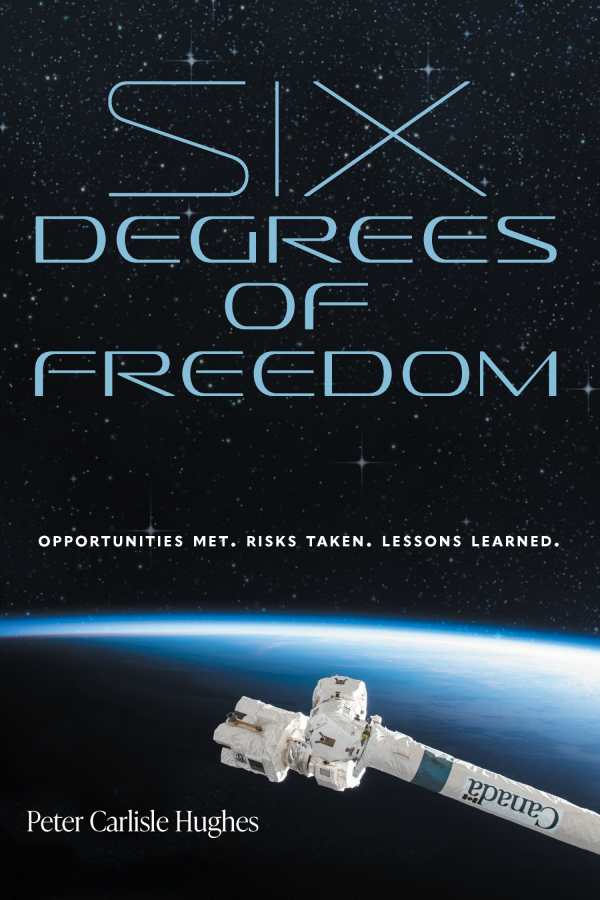Six Degrees of Freedom
Opportunities Met. Risks Taken. Lessons Learned.
Six Degrees of Freedom is a thorough memoir about an aerospace career that began when the industry was undergoing groundbreaking changes.
Peter Carlisle Hughes’s memoir Six Degrees of Freedom is about how he—an enterprising, music-loving math whiz—integrated his interests and skills into his aerospace engineering career.
Born in 1940 and raised by pious Christian parents, Hughes grew up in a remote town in Ontario. He participated in theater, learned to play the piano, was social, and engaged in athletic activities in addition to his classroom pursuits. At the end of high school, he won a scholarship to study at the University of Toronto. There, he studied engineering science and admired the debate club, through which he learned to enjoy “civilized discussion” and egalitarian back-and-forths of ideas. Post-graduation, he decided to specialize in the emerging aerospace engineering field. His PhD work led to further work on satellites.
With aerospace as its main focus, the story is organized around six major decisions, which are associated with the six degrees of freedom that rigid bodies in space possess. Like these degrees of freedom, Hughes’s decisions are used to track his increasing capacity for free agency over his life. Footnotes are used to cover the book’s supporting information without distracting from the main text.
The chapters also follow a systematic, rational pattern: first, they summarize Hughes’s academic accomplishments and challenges; then, they touch on more personal matters. This method helps to compartmentalize Hughes’s memories, and helps when it come to maintaining the book’s balanced, steady pace. The later chapters, which cover how he expanded his leadership positions, show how his improving status in his field afforded him opportunities to expand his knowledge base and influence, as well as to travel, a primary pastime of his.
The narration is serious and jovial in equal parts. It covers Hughes successes, but also moments where he flailed, and enlivens these accounts with witty asides. It also covers simple pleasures, as with food, music, plays, and sports. He remembers writing poetry with his wife; he studies and reports on his life through engaging anecdotes and salient facts.
Accolades to Hughes’s students and colleagues comprise most of the book’s dialogue; these are more formal inclusions, but still include some emotional moments. However, Hughes veers into delivering opinions about “woke” mentalities; this deviation, and his strident posture on the point, is used to address the parallel topic of the directions that higher education may be taking.
Covering goals set and achieved, Six Degrees of Freedom is a thorough memoir about an aerospace career that began when the industry was undergoing groundbreaking changes.
Reviewed by
Mari Carlson
Disclosure: This article is not an endorsement, but a review. The publisher of this book provided free copies of the book and paid a small fee to have their book reviewed by a professional reviewer. Foreword Reviews and Clarion Reviews make no guarantee that the publisher will receive a positive review. Foreword Magazine, Inc. is disclosing this in accordance with the Federal Trade Commission’s 16 CFR, Part 255.

